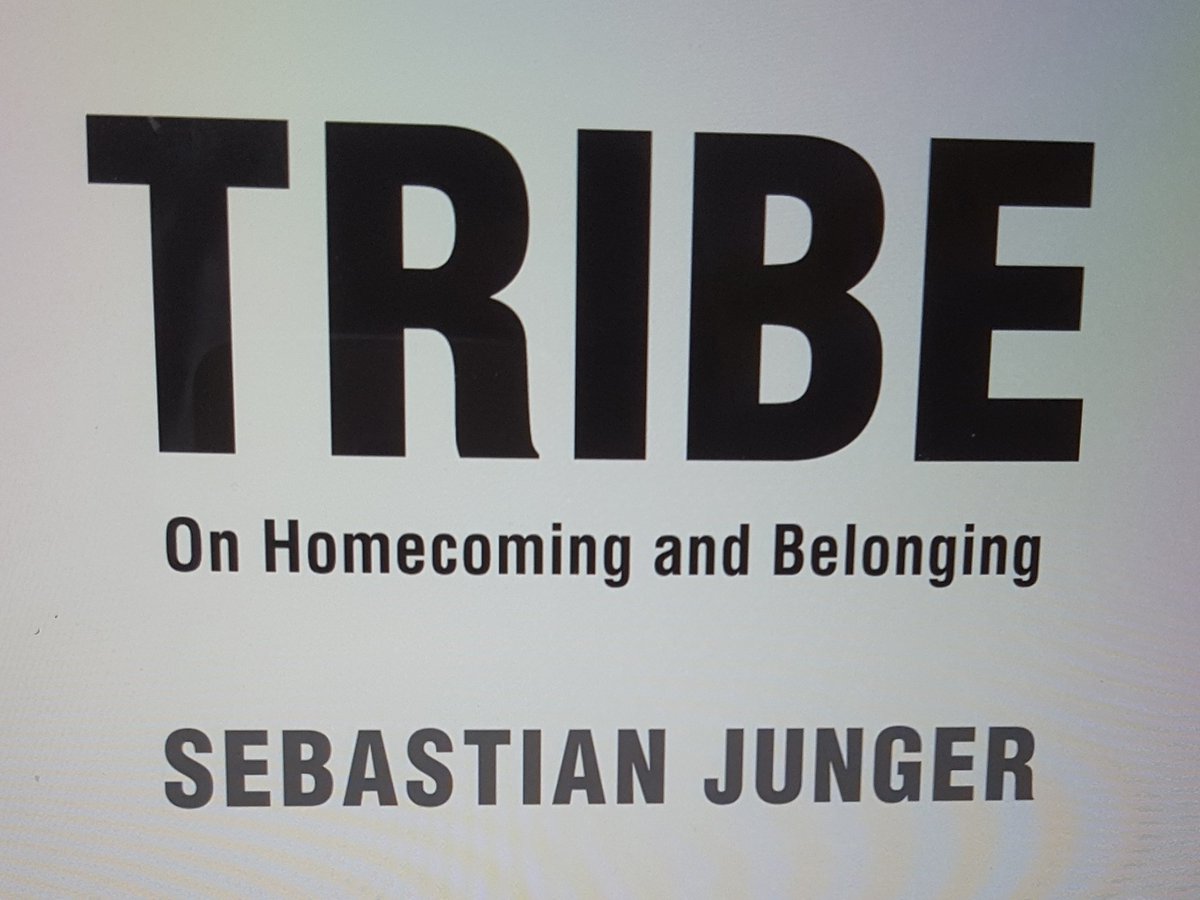
"What I wanted wasn't destruction and mayhem but the opposite: solidarity."
"How do you become a man in a world that doesn't require courage?"
In Wyoming, a man living in a broken-down car asked him where he was headed + if he had food. Junger, worried abt being robbed, said he didn't have much. The man gave Junger his food.
Lifelong memory created
Apparently, many white Americans ran away to join native tribes, but the reverse almost never happened.
"The Spanish Inquisition was also busy serving up just as much barbarism"
- sexual mores more relaxed
- clothing more comfortable
- religion less harsh
- social status relatively classless &egalitarian, stemming from hunting & war
- personal property limited (so inequality minimal)
- women more autonomous
- nomadic bands ~50 people
- high levels of accidental injury&death
- domineering senior males balanced by coalitions
- v intolerant of hoarding & selfishness
- occasional hunger, violence, hardship
- extremely close&involved childcare
- never alone
- increased accumulation of personal property
- more individualistic choices
- now possible to go through entire day (or entire life) surrounded by others yet deeply, dangerously lonely
- increased depression, schizophrenia, anxiety, suicide
- survey of 6,000 US lawyers found zero correlation between high billable hours/making partner & self-reported happiness
- public defenders who earn less and have less status seem happier
- Amish have v low rate of depression
Modern society emphasizes extrinsic values over intrinsic, literally prioritizing wealth over health. The more you assimilate..
In 1970s America, skin-to-skin contact with mother was as low as 16% - might be considered child abuse by some societies.
Similar issue: isolating sleeping children
Ancestral-type societies punished "failure to share", "freeloading" and "bullying", starting with ridicule and shunning, all the way up to "assassination of the culprit by the entire group"
No bystanders
(The British military executed cowards by firing squad as recently as WW1)
His dad: US soldiers saved the world from fascism in WW2; 1000s of young Americans are buried in France. You owe your country sth, maybe your life
Suicide rates dropped 50% in Belfast during riots of ‘69-70.
In bitter safety I awake, unfriended
And when the dawn begins with slashing rain
I think of the Battalion in the mud.
- most veteran suicides over 50yo; suicide likely unrelated to trauma
- deployment actually lowers risk of suicide for younger vets, bc soldiers with obvious mental health issues aren't deployed
- military men 2x as likely to report childhood sexual assault than civilians (AMA, 2014)
😔
Unmanned-drone pilots have the same PTSD rates as pilots flying actual combat missions in war zones
In 1973 Yom Kippur War, rear-base troops had 3x the psychological breakdown rate as frontline troops (elites)
(We need each other goddamnit)
Sri Lankan special forces experience far more combat than line troops, but lower rates of all physical and mental issues (but they did lead in "hazardous drinking" 😂)
Also true for Peace Corps
- overall social cohesion (do people generally look out for each other?)
- victimhood identity (do people feel sorry for you?)
- feeling necessary to society (do people need you?)
USA scores poorly on all these fronts











